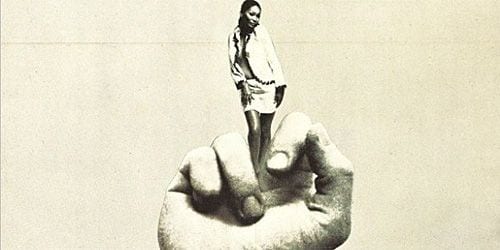
In a series of conversations recorded by The Criterion Collection between Robert Downey Sr. and Paul Thomas Anderson, the younger director sums up the essence of his idol and friend’s work by bluntly asking, “What the fuck is going on?” The elder filmmaker replies just as eloquently by exclaiming “[more importantly] How the fuck did I do it?”.
The truth is that Robert Downey Sr. has never held tradition or rules in high esteem. At a time when the world was preoccupied with the nuclear age and civil rights, he found a way to filter these topics through pure cinematic anarchy in a series of films now compiled by Criterion under their, endlessly surprising, Eclipse Series.
Eclipse Series 33: Up All Night with Robert Downey Sr. features five films directed by the absurdist filmmaker between 1964 and 1975, all of which have only one common denominator: utter and complete madness. In 1961 the director released Babo 73, an acidic political satire in which actor Taylor Mead plays the President of the United Status, a messed up government trying to battle the “Red Siamese”, while holding important cabinet meetings at an abandoned beach and reconvening in their own version of the White House: an abandoned Victorian mansion on the verge of collapse.
If the film’s settings and “production design” suggest a political environment that was similarly on the edge of chaos (the film was released during the 1964 election), it might be only by chance, given that Downey himself confesses how the budgetary constraints and lack of permits to film in locations, forced his tiny crew to shoot guerrilla style. What remains undeniably brilliant is the zany dialogues the director gives his actors, some of which make no real sense but are delivered with Marxian (Groucho not Karl) gusto.
Babo 73 was followed by the even more irreverent Chafed Elbows, a film that opens with its hero, Walter Dinsmore (George Morgan) lying in post-coital bliss with a woman who turns out to be his mother (she is played by Elsie Downey, the director’s wife, who played over a dozen characters in the film). After this shocking revelation, we follow Walter as he goes through his annual breakdown. Like a (more) twisted Frank Abagnale Jr., he goes through a series of odd jobs and adventures, all of which require him to pretend he’s something he’s not.
Taylor Mead in Babo ’73 (1973)
The film is composed mostly of photographs which are then played in sequence (think La Jetee without any romanticism), alternated with a few live action sequences. All of the dialogues were dubbed and to Downey’s surprise, the film turned out to be a commercial success, in spite of its very humble origins (post-production and development credits going partially to Walgreen’s).
What Downey achieved with Chafed Elbows, was nothing if not, the revelation that madcap cinema had its place next to the massive productions being released by the studios, at the time of its release, The Sound of Music was winding down its box office run as the most popular movie of all time…
After Chafed Elbows came No More Excuses, a quasi-documentary in which Downey captures the swinging ’60s sex scene by interviewing couples involved in all sorts of sexual practices. The couples’ responses are intercut with scenes of Downey’s first short film, in which he played a Civil War veteran who finds himself in modern day New York City, leading to a hilarious scene where he walks into a baseball game. “A weirdo dressed in Union Army uniform wandered out of the right field [and inquired] ‘where are those damyankees’?” read the newspaper the following day. For those keeping track of “firsts”, with No More Excuses Downey predated the neurotic single scene of Sex and the City and the anachronistic insanity of Borat by a good four decades.
Putney Swope (1969) might just be the director’s most famous film. A satire dealing with the politics of Madison Avenue and the corruption of the white power structure, this one has its title character (played by Arnold Johnson) become chairman of his ad agency, when his predecessor unexpectedly dies and his colleagues chose him merely so their enemies won’t win. Their plan backfires when Swope turns the agency into an institution dedicated to black power and refuses to make business with tobacco and alcohol companies, to the point which he is deemed a national security threat by the government. What Swope lacks in budget, it more than makes up for in pure wit.
The last film featured in the set is Two Tons of Turquoise to Taos Tonight which has been heralded as a dadaist work ahead of its time, but in all honesty is the least pleasurable entry in this otherwise exciting collection. Considering that as a young man Downey ignored the traditional path and instead played semi-pro baseball, served in the army and worked in off-Broadway plays, his early oeuvre marvelously represents his zany personality.
Decades later he would add the “Sr” to his name, after his firstborn son became a movie star. Whatever there is to be said there about the role of patriarchal values becomes obsolete when you realize that Sr. once made Jr. play a puppy in one of his films. His eventual “passing of the crown” perhaps an apology to his son, for all the fun his friends would make at his expense in years to come.

![Call for Papers: All Things Reconsidered [MUSIC] May-August 2024](https://www.popmatters.com/wp-content/uploads/2024/04/all-things-reconsidered-call-music-may-2024-720x380.jpg)



